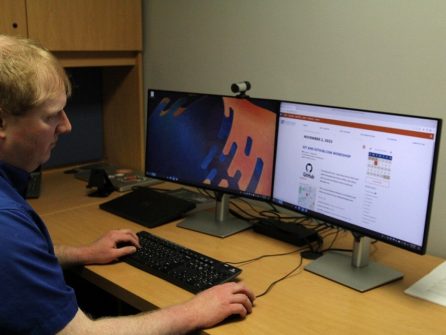The University of Florida’s large and diverse population is comprised of students, faculty, and staff. But there are many other primary roles (known as ‘affiliations’) in our Gator community, and everyone’s affiliation determines what digital services they are entitled to access. Some of these additional primary UF affiliations include emeritus faculty member, consultant, community members who use UF libraries, authorized vendors, and newly admitted students not yet enrolled.
UFIT has an updated webpage showing which affiliations can use the following provisioned services.
| UF Email Eligible | 365 License | Dropbox | Power BI Pro | Zoom | VPN | Eduroam |
|---|
UFIT maintains the list of primary affiliations for the university. Anyone with questions about their affiliation or the assigned affiliation of a new hire or former employee is encouraged to chat with their department security administrator (DSA).




